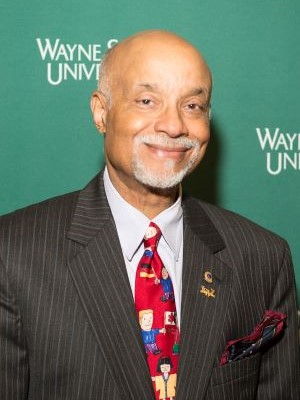
Ron Coleman
PHARMACY, MORTUARY SCIENCE
Graduated in 1963 from Mortuary Science and in 1968 from Pharmacy
Q: Why did you choose Wayne State?
A: As a graduate of Detroit Northwestern High School and a resident of Detroit since moving from St. Louis, Missouri, in 1952, it was easy to choose Wayne State. The university was easy to access by public transportation, not so costly and offered a college of pharmacy.
Q: What inspired you to pursue pharmacy?
A: As early as the 10th grade, I thought pharmacy would allow me to use my interest in science and medicine, and to serve people. I pursued a degree in mortuary science so I could have an evening job as I began pharmacy school — my stepfather’s friend who owned a funeral home hired me.
Q: Who was your most memorable instructor?
A: Like many of my colleagues in pharmacy, Dr. Melvin Dunker had a great impact on my professional development in pharmaceutical chemistry. He encouraged being precise, especially in laboratory procedures. In mortuary science, I think Dr. Gordon Rose influenced our ethical and moral thoughts in caring for families we served.
Q: What was your most challenging class?
A: Although Dr. Dunker was challenging, my greatest challenge was the series of three physics classes in liberal arts. My math background was very suspect! I was able to get two B’s and one C in physics because I was scared and focused!
Q: Share some reflections about your time at Wayne State.
A: I met many classmates who would continue to be my friends and colleagues for life.
Q: In your opinion, what is one of the biggest changes that has occurred in your profession since graduating?
A: In pharmacy, there’s less focus on the preparation of prescriptions and more manufacturing on a large scale, plus greater attention paid to consulting patients on the proper use of their medications to enhance desired outcomes and prevent side effects. For mortuary science, a big change was the federal law requiring itemization of funeral services on the final bill.
Q: We were proud to count you among our Board of Visitors. Tell us about your public service beyond WSU,
A: I'm very proud to have served as District Governor over Wayne and Monroe counties in 1998-99, and I am also very proud to support my wife , La Wonna Lofton-Coleman, as she is in line to be District Governor 2024-25. Also, much of my time has been used to encourage young people of color to attend college in a career of their choice, but mostly in pharmacy, medicine, occupational therapy and other health fields offered at WSU Applebaum.
The Doctor of Pharmacy program at Wayne State University is a four-year curriculum in the heart of Detroit. Approximately 100 students are enrolled in each year of the program. WSU Applebaum information meetings for prospective students take place at 6 p.m. on the first Tuesday of each month. The application process or the Doctor of Pharmacy program begins each July.
An anchor in urban health care
The Eugene Applebaum College of Pharmacy and Health Sciences is built on more than 100 years of tradition and innovation in the heart of Detroit. We have grown deep roots in our city, harnessing its powerhouse hospital systems and community service organizations as vibrant, real-world training grounds for students, with an ongoing focus on social justice in health care. And our research at all levels – from undergraduates to veteran faculty members – translates into creative solutions for healthier communities.
Wayne State University is a premier urban research institution offering approximately 350 academic programs through 13 schools and colleges to nearly 24,000 students.